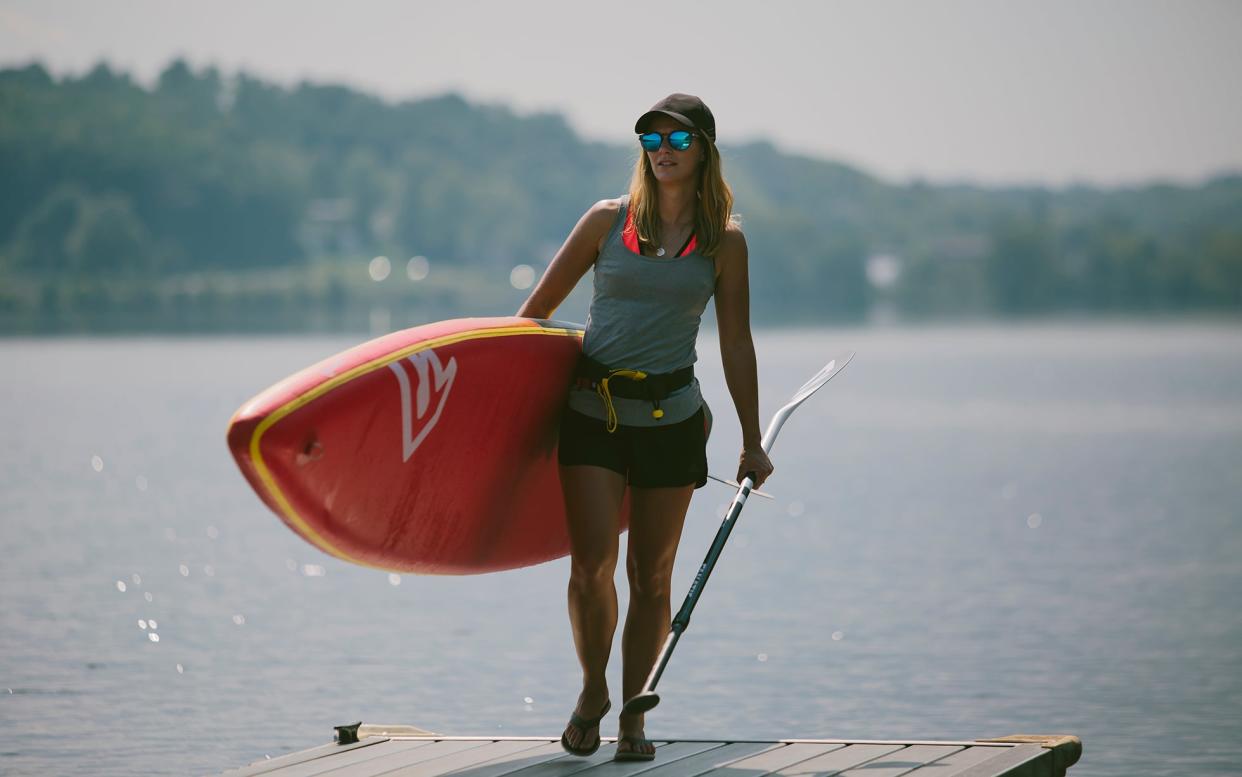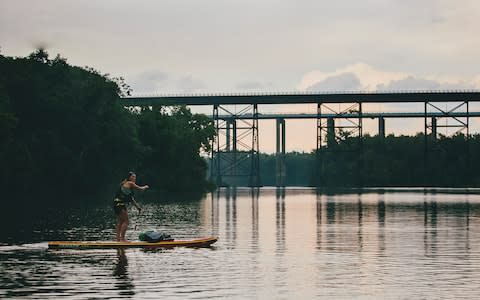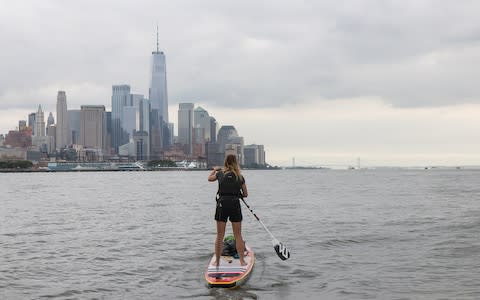The age of the self-indulgent 'explorer' is over – true adventurers are scientists

As the first crackle of thunder reverberated around me I knew I needed to act fast. A bolt of lightning followed almost immediately, too quickly for me to find a safe landing point and get off the water.
It was the first day of The Hudson Project, my mission to solo paddleboard the entire tidal Hudson River in New York – all 170 miles of it – and the latest in a series of ‘adventures with purpose’ I had undertaken to draw attention to the global plastic crisis.
In one hand I was holding a carbon fiber paddle – a known conductor of electricity – and in the other I was clutching a walkie-talkie desperately trying to make contact with the logistics team positioned some three miles downstream at the nearest marina and, importantly, my closest exit point. The thunder rumbled again, another warning, as I rushed for cover under a large road bridge before a chorus of sharp white darts struck several places around the water.
I was scared and, in that instant, questioned the motivation to put myself in this position.
While there’s no denying that pulse-quickening thrills and the opportunity to test your stamina and character is part of the charm of adventure, it certainly isn’t enough of a motivation to tempt me into potentially dangerous or hostile situations. The incentive came with a bigger reason than a self-indulgent quest for personal growth, setting speed records or gaining recognition.
Exploration, by its very definition, is centred on bringing back and sharing information and data to improve, educate and challenge perceptions of a particular environment. In its earliest guise, explorers would unearth foreign lands, discovering unknown civilizations and experiencing unique cultures. But in the age of 3D animation, geo-modelling, social connectivity and satellite mapping of the entire Earth’s surface there is very little – if anything else – left to physically uncover on land.

While we are still scratching the surface when it comes to the darkest depths of the ocean and outer space, modern day exploration on land has evolved far beyond plotting boundaries.
As the environmental issues we confront become increasingly complex and challenging, the need for further research and insight to better understand the widespread scale is more urgent than ever. Adventure exploits can be justified by contributing meaningfully to scientific research, and the rise of technology and global connectivity is allowing individuals to tell stories and gather data in unprecedented ways.
As part of my mission to stand-up paddleboard the Hudson River I intended to capture data through citizen science – a common theme of all my challenges. I worked closely with organizations and researchers on the front line of climate change and, more specifically, plastic pollution along the Hudson River to ensure my plans would enhance their own activity and allow us to identify patterns and trends from our mutual efforts.
I introduced Smart Fin technology (a detachable micro chipped fin) that passively and periodically collected water temperature and motion characteristics, allowing me to create, for the very first time, a baseline for the tidal Hudson. I geo-tagged every single piece of plastic I encountered using the Plastic Patrol app I had developed two years earlier to crowd-source data on plastic pollution worldwide. The global map clearly illustrates types of plastic people are finding, where they are located and, ultimately, the brands responsible. To date, the app has attracted more than 50,000 examples shared across 26 countries to provide real-time insight into the issue.
We have reached a new era of exploration, one that allows anyone to be an adventure scientist with a little bit of research and planning. Earlier this year NASA called for backcountry skiers to report on snow levels in Alaska using, simply, a smartphone and measuring stick. Insight would help them calculate the volume of water likely to end up on the region’s rivers and reservoirs when the snows melted and inform whether the implementation of proactive flood measures were required.

NASA’s programme didn’t stop on the slopes. Scuba divers were tasked with recording changes in giant kelp across the globe, and they found ways to learn more about mosquito populations and their breeding environments – all thanks to the interest and support of the public willing to embark on adventure that served a greater purpose beyond their own enjoyment.
The future of our planet relies on understanding the challenges it confronts. We all have the tools to become explorers in the modern sense of the word, and if we want to safeguard the planet we have a duty to step up to this role when we travel.
Lizzie Carr's new book Paddling Britain, published by Bradt Travel Guides, is out now. You can find out more about her projects on lizzieoutside.co.uk.

